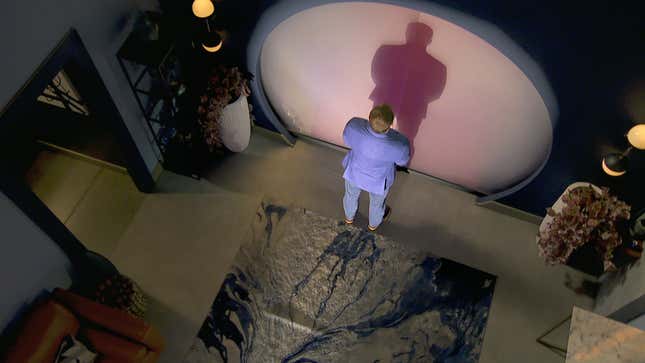
Chris Coelen, the talent-agent-turned-reality-TV kingpin, is standing by his social experiment cum reality show Love Is Blind against a wave of allegations. In April, several Love Is Blind contestants accused the show of psychological torture. Cast members say the show exploited their vulnerabilities, traumas, and good faith by feeding them alcohol, withholding food, denying sleep, and forcing them to sign contracts that locked them into a $50,000 exit clause. Coelen, who insists his Netflix reality television series is an experiment into how people love and connect while trapped in pods, tells a different story. In an interview with Variety, Coelen responds to each of the allegations against the show, stating that the show takes care of the cast before and after production ends.
- Off
- English
With regards to Danielle Ruhl, who claims she disclosed past suicidal ideations prior to filming, Coelen says that was not the case. He says she “didn’t inform the production team that she was having any thoughts of self-harm” and “if she had, we wouldn’t have continued to film with her.” Coelen also says she never asked to leave. She was “free to leave” at any time, “as many participants have.” He also encourages “people at the end of their time in the experiment” to “seek aftercare,” which is the mark of the integrity of any reality television series—er, um, excuse us, experiment.
Ruhl stands by her allegations, though. “It wasn’t something I specifically noted in the application itself,” she told Variety. “I had conversations with producers. I had conversations with therapists, but to their point, it was nothing that had been written down, so whether or not something had been communicated to them, I don’t know [...] I will admit that, at the time of filming, I did say that I was in a really good mental space.”
With regards to the $50,000 clause, which requires participants wishing to leave to pay a penalty to do so, he says that it was in the contract but wasn’t enforced. We suppose this is an experiment in trust; participants must assume a reality TV production company is acting in good faith and won’t sue the shit out of a psychologically vulnerable participant who wants to leave their pod and screw up the show. The penalty was recently removed from contracts—because participants undergoing experimentation believed it was a real penalty, we’re assuming.
As for Jeremy Hartwell’s accusations that Love Is Blind is home to “inhumane working conditions,” citing experimenters’ refusal to provide food, water, and suitable living quarters, Coelen denies it. He says that participants have catered meals, running water, and the ability to take naps whenever they want. Plus, once a cast member reported a cockroach, he moved the contestants to a hotel.
“You’re asked to stay in your hotel to protect the integrity of the experiment,” Coelen says of humane and very normal working conditions. “We disconnect their phones and internet so they can’t get online because people are tempted to look people up.”
However, though Coelen makes alcohol accessible, it’s on the people he’s experimenting with to make good decisions.
“Every season, I say, ‘Listen, we’re here to try to make you and this journey feel as comfortable as possible, so that you have the opportunity, for real, to fall in love with someone,” he said. “I personally recommend that you don’t drink to excess, because I personally don’t think that’s a good way to connect with your potential spouse — especially doing it through a wall. Whether you want to drink or don’t want to drink, it’s up to you.”
We personally don’t know why anyone living through a Stanford Prison-esque Experiment posing as a dating competition would abuse alcohol. Especially when there are so many mental health professionals on hand to help them through the Love Is Blind experience. That’s the true mark of a safe and successful television show: the need for constant therapy.
